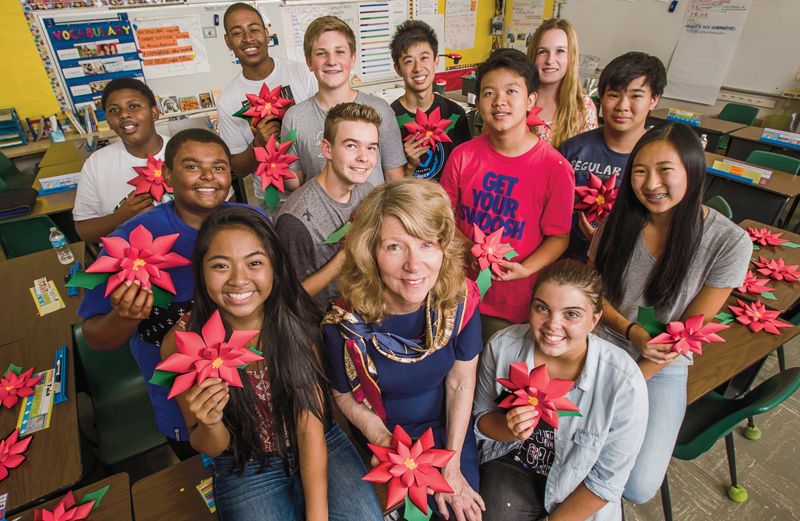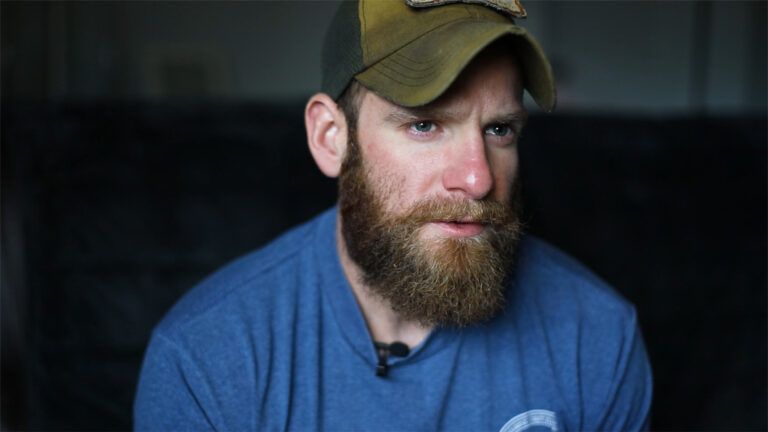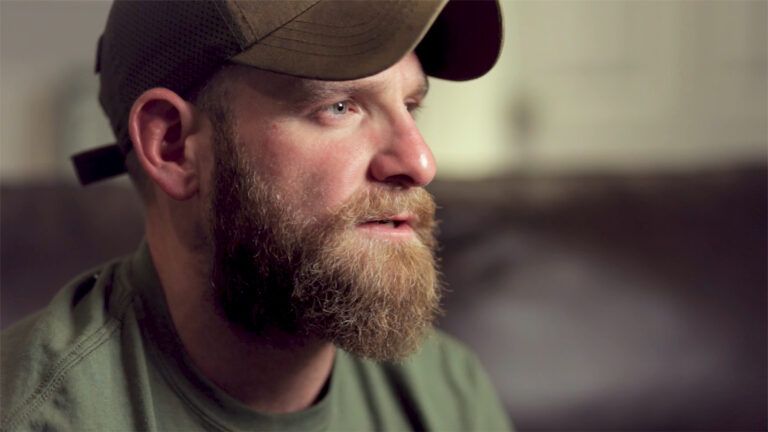On a Wednesday night, a few weeks before Christmas, I sat at my desk in my classroom, deep into lesson plans for my fourth graders. I live next door to the school, so I’d gone home for dinner with my husband and then come back to catch up on work.
There was an insistent rapping on the door. “Who is it?” I asked. The custodian, probably.
“It’s me. Tish.” Tish’s daughter, Susan, had been in the first class I taught here, and over the years we’d developed a friendship.
Sometimes she’d walk her dog by the school, see my light on and come in and chat for a while, telling me the latest about Susan, who was now in college. I walked over and opened the door.
This time, Tish had more in mind than a chat. “One of Susan’s friends enlisted in the Air Force,” she said. “His parents were shocked. Johann is only 22 and is stationed in Afghanistan. He keeps in touch with Susan, but otherwise doesn’t have much support. Could you and your class write to him so he gets some mail at Christmas?”
“Absolutely,” I said. “They will be thrilled.”
“Thanks. I knew I could count on you. I’ll let you get back to work.”
Yes, my work. I still had pages of lessons to teach before Christmas. Simplifying fractions (always a challenge). Summary writing. Reading strategies so they’d do well on state tests in the spring. And California state history.
The kids still needed to learn about the rancho period to prepare for our fiesta on the last day before winter break.
But my heart went out to the young airman. He was about the same age as my younger daughter. I couldn’t imagine her being in a war zone thousands of miles away, with no word from home. If one small act might help Johann, we’d find the time.
Besides, hadn’t I been trying to show my students that writing was a skill they would use not just on a test but for the rest of their lives—from thank-you notes to cover letters for job applications to presentations for work?
Here was an opportunity for the kids to write authentically, as we teachers call it.
The next morning, I stood in front of my class and announced, “I have a new project that I think you’ll like. Writing letters.” Thirty nine-year-olds slouched in their seats, looking bored.
Letter writing was a skill they had to master, according to state standards. It probably sounded like just one more thing they were required to do. How could I get them excited about it?
“There’s a young man named Johann who needs our encouragement right now,” I said. “He’s in the Air Force, far from home, serving our country.”
Was there even a flicker of interest? “He graduated from Washington High School,” I continued. “The same high school you’ll attend. Imagine how you would feel, alone in a country where you don’t speak the language. Where you don’t have family or friends.”
Click. The kids sat up. Connection made.
One boy’s arm shot up. “Mrs. Laird, what should we write?”
“Tell him about your life. What you’re doing this time of year, what you’re reading. Most importantly, end the letters by thanking him for his service.” I told them to sign only their first names and to use the school’s address.
I passed out paper. The students chewed their pencils and got down to writing. When it was time to stop, the classroom buzzed as they leaned over each other’s desks, sharing what they’d written.
I couldn’t help but think about the class’s personality. Usually after the kids get to know each other, a class personality emerges. One year I had a lot of students who liked math; they were my class of accountants.
Another class came up with all kinds of creative inventions—natural entrepreneurs. This class was clearly full of social workers. They wanted to reach out and help people.
That evening, when I dropped off the letters at the post office, I sent a prayer along with them. Please watch over Johann, Lord, I asked. Keep him safe.
The next week was hectic. One afternoon I rushed through yet another project: teaching my students to make construction-paper poinsettias for the fiesta. “Let’s make poinsettias for Johann!” a boy in the back exclaimed.
“Yeah, Mrs. Laird! Can we?” another voice piped up.
“That’s a wonderful idea,” I said.
“He can put them up in his tent,” one girl suggested. “Maybe he can give some to the other soldiers,” another said.
I was thrilled Johann had become more than an assignment to them.
Hands flew. Every student made an extra poinsettia for Johann. I put them in the mail to him, saying more prayers for his protection.
One of the first things the kids asked after winter break was, “Did Johann get our letters?”
If only I knew. “I haven’t heard from him,” I said. “He’s probably so busy he doesn’t have time to write.”
Weeks went by. One day at the end of February an announcement came over my classroom’s speakerphone from the school clerk.
“Mrs. Laird, you have a visitor.” Puzzled, I stopped what I was doing and went to the phone.
“I’m not expecting anyone,” I said.
“He’d like to see you and your class. I’ve talked with him and he checks out.”
“Okay, send him down here.”
In a few minutes, in walked a tall, neatly dressed, dark-eyed young man. “You must be Mrs. Laird,” he said, extending his hand. “My name is Johann. I’m home on leave and I wanted to meet the kids who wrote to me.”
Smiles burst across my students’ faces. For the next 45 minutes they peppered him with questions. I liked the way Johann took time with his answers. He was a thoughtful young man.
“Were you scared?” one boy asked.
“I’d be lying if I said no,” he answered.
“Did you ever see any children?” asked another.
“I visited the Red Cross hospital on base twice a month,” Johann said. “Also, my unit donated notebooks, pencils and other school materials to Afghan children.”
“What did you do for fun?”
“I worked out a lot. And I played basketball with my unit when we had the time.”
“Are your parents glad you’re home?” someone asked.
“My parents weren’t too happy I enlisted, but they’re glad I’m safe.”
Johann stood, as if to go. How remarkable that he made the effort to stop by, I thought.
But he didn’t turn to leave. He surveyed the classroom, pausing to look each student in the eye. “I want to tell you all something,” he said.
Thirty pairs of eyes were trained on him.
“Every night before going out on patrol, I picked up one or two of your letters,” Johann said. “Different ones each night. I would reread them. Then I’d put them in my pocket to take with me. Whenever I felt scared I’d run my hand across them. I can’t explain how much they meant to me, knowing that someone wanted me to come home safely.”
The kids were silent. They didn’t know what to say. It took everything I had to hold back my tears.
My students scored well on the state writing test the following month. They’d learned the lessons I’d taught them. Really, though, the most meaningful lesson came from a far greater Teacher. A lesson that can’t be measured or graded, only felt with the heart.





